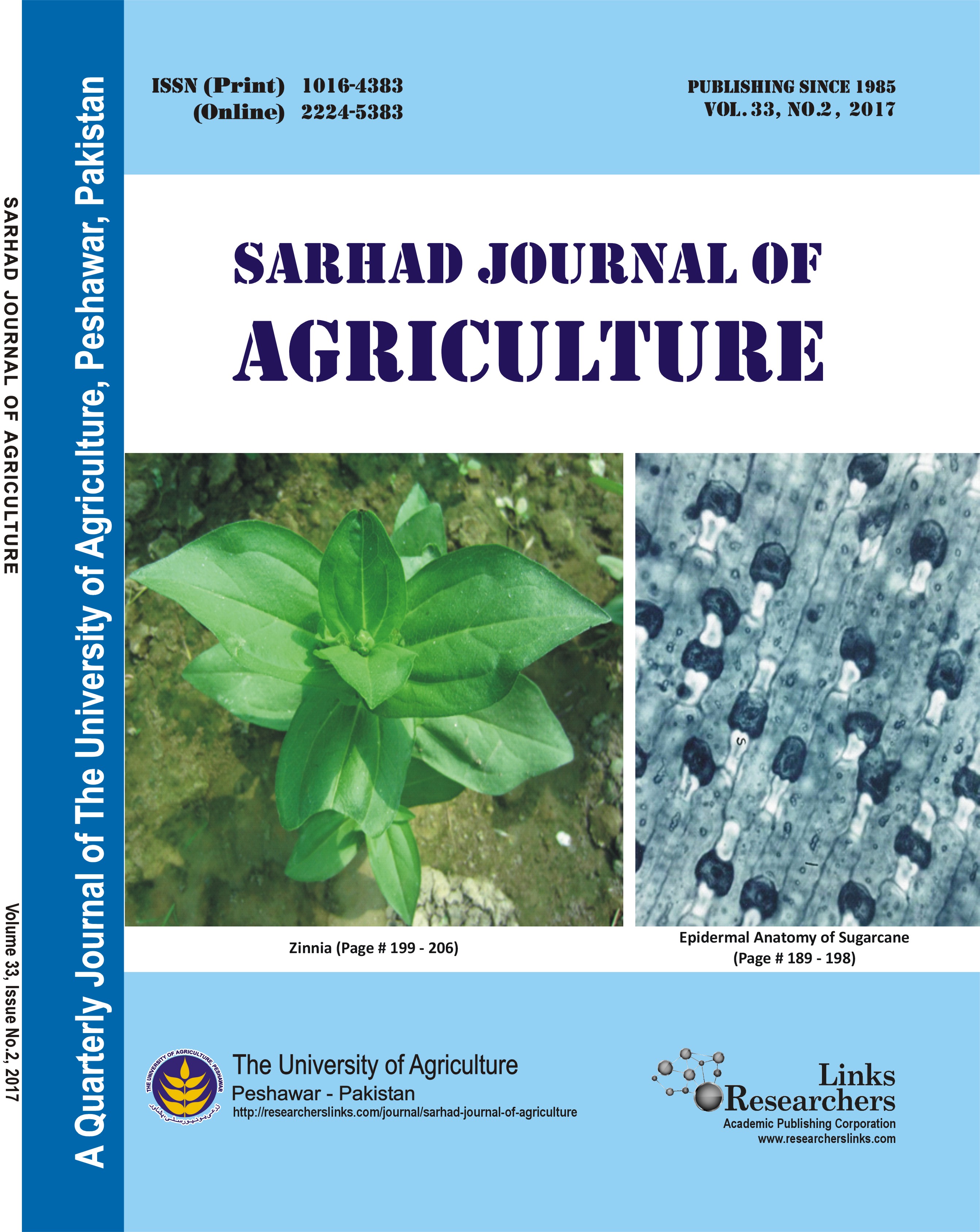Biochar Application Improves Soil Respiration and Nitrogen Mineralization in Alkaline Calcareous Soil under Two Cropping Systems
Biochar Application Improves Soil Respiration and Nitrogen Mineralization in Alkaline Calcareous Soil under Two Cropping Systems
Tasneem Shah*, Muhammad Tariq and Dost Muhammad
ABSTRACT
To share on other social networks, click on any share button. What are these?







